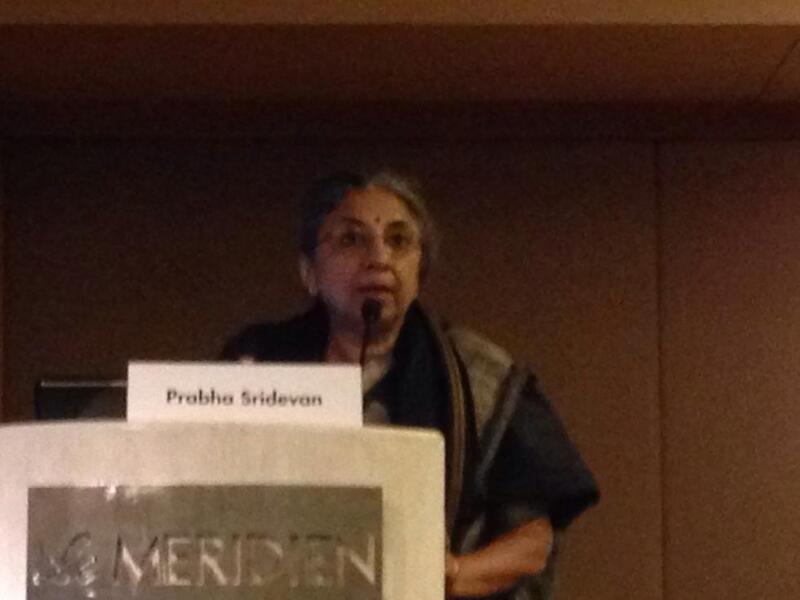
The IPR Think Tank drafted the Policy. Former head of the IP Appellate Board (IPAB) Prabha Sridevan (pictured right) is chair of the body. The other members are Prathiba M Singh, Narendra K Sabharwal, Punita Bhargava, Rajeev Srinivasan and Unnat Pandit.
The DIPP is seeking comments on the Policy at ipr@nic.in until January 30.
The Policy is part of Prime Minister Narendra Modi’s strategy to make India more business-friendly. Elected in part for his economic successes as chief minister of the province of Gujarat, Modi’s Bharatiya Janata Party (BJP) had promised during the election to “embark on the path of IPRs and Patents in a big way”.
The draft Policy lays out several objectives focusing on different obstacles to utilisation of the IP system. This includes increasing awareness of intellectual property generally, promoting the creation of IP, reforming legal and administrative frameworks, assisting with commercialisation, improving enforcement and adjudication mechanisms as well as developing India’s human capital.
The mission of the Policy is to ensure that the IP system encourages development of the knowledge economy and economic growth as well as promoting socio-economic interests such as public health.
Several of the proposed policies seek to address inefficiencies in building in harnessing innovations that are not receiving IP protection or being properly monetised. For example, the Policy notes that the country produces many inventions that are useful and novel but not necessarily patentable and argues that because of this, India should provide protection for these lesser inventions through utility model patents. Similarly, the Policy makes several references to education campaigns not only to increase awareness of IP laws but also to encourage use of systems such as the Madrid Protocol.
The Policy recommends that India create several specialised IP courts and tribunals. In addition to calling for the creation of patent benches in the High Courts of Bombay, Calcutta, Delhi and Madras, it also recommends designation a district level IP court. The National IP Rights Policy also calls for increased authority and autonomy for the IPAB.
Not surprising
Several of the ideas in the Policy have been raised and debated previously. For example, the issue of utility models came up several years ago, though some IP owners suggest that adding unexamined utility models to the mix would only increase the difficulties in using the patent system. Similarly, during her time at the helm of the IPAB, Sridevan advocated for both increased resources and autonomy for what she has argued is the most important court in the country. Likewise, another recommendation to increase the efficiency and headcount of the IP offices goes toward long-standing complaints about long delays and cumbersome procedures at the various registrars.
Though the draft National IP Rights Policy does not make explicit reference to hot topic issues such as compulsory licensing and India’s unique patentability standards, it does state that India is “fully conscious of its international obligations and has always abided by them” and that the country “has protected the national interest and balanced the rights of IP owners with their obligations to society”. Though some Indian groups expressed concern that the Modi government would push for changes in the IP system to appease international pharmaceutical companies, these statements may indicate that major changes may not be forthcoming at this point.









